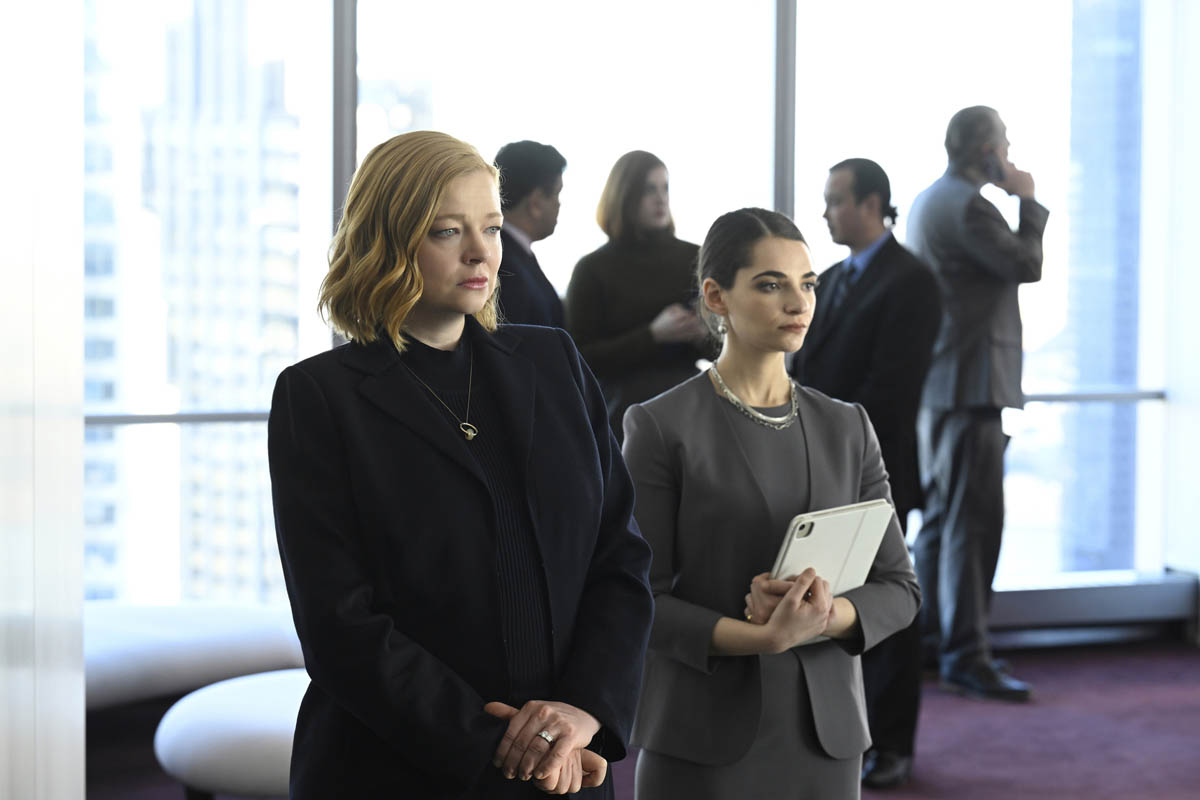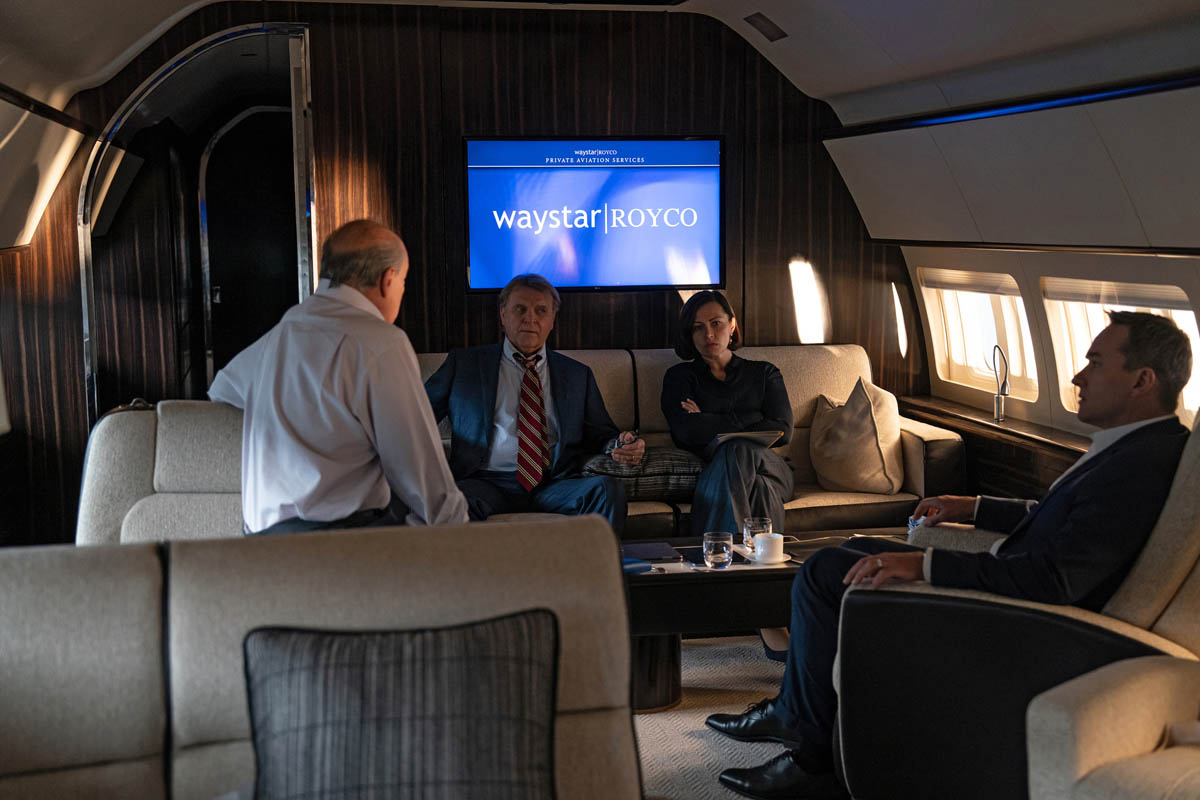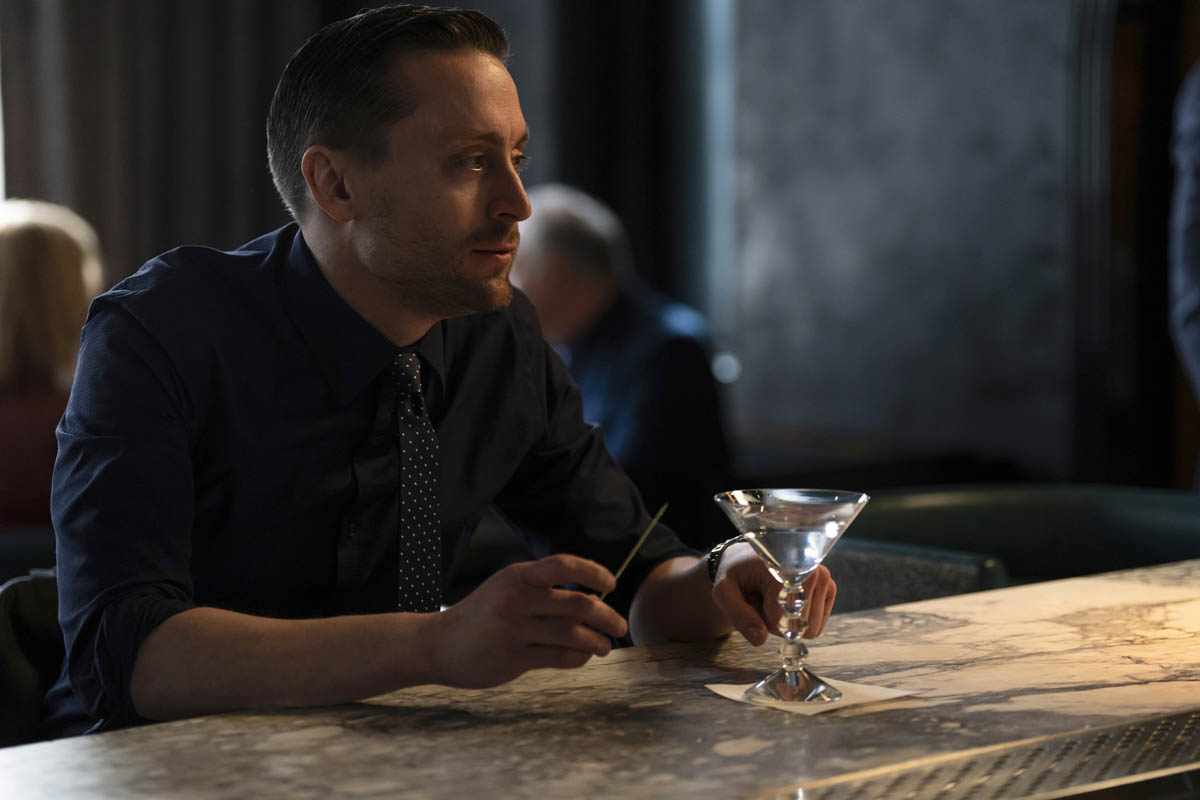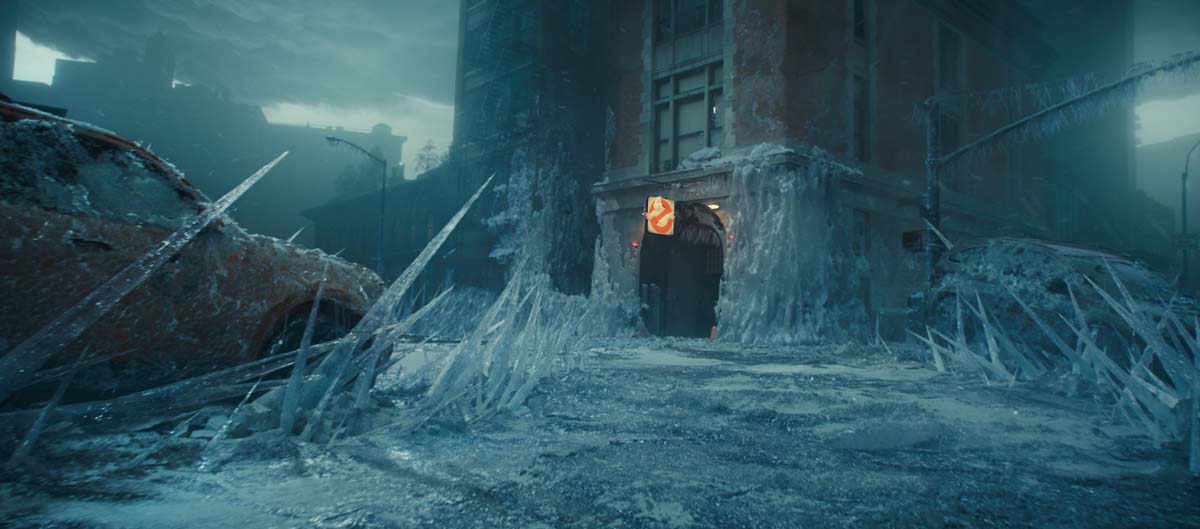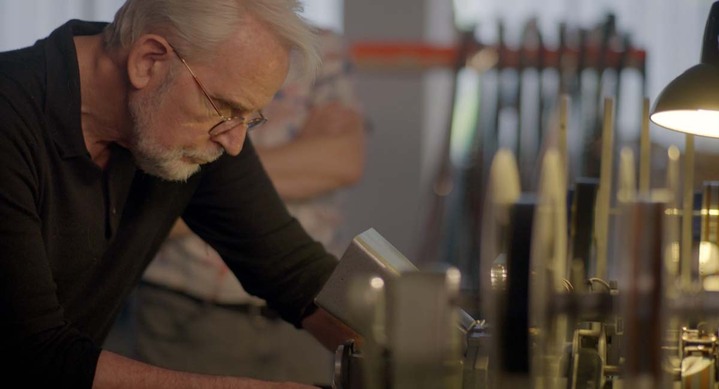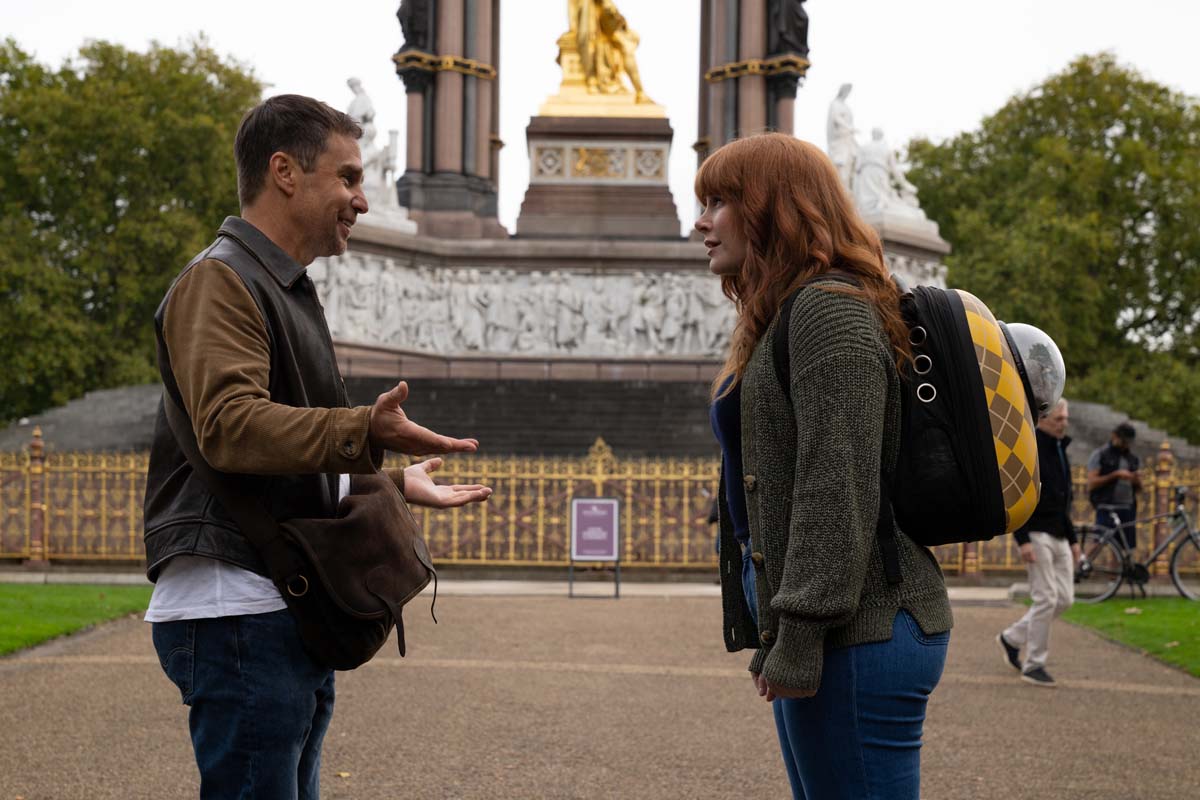Succession
The editing team discusses the biggest challenge of the series — what it’s like to edit with lots of moving camera angles and each take being different.
Today on Art of the Cut, Ken Eluto, ACE, Jane Rizzo, ACE and William Henry, ACE discuss cutting Succession, which has earned all three of them Emmy nominations for separate episodes this year.
Ken landed his first Emmy nomination in 1996 for American Experience. He was also nominated for an Emmy and an ACE Eddie for 30 Rock, then WON an Emmy and ACE Eddie the following year for 30 Rock again. More Emmy nominations and another ACE Eddie nomination came his way for 30 Rock in subsequent years, then additional Emmy nominations for Succession in 2020 and last year. Ken has also worked on Modern Love, Genius, Unbreakable Kimmy Schmidt and others.
Jane Rizzo was nominated last year for an Emmy and an ACE Eddie for an episode of Succession. The also cut the recently released The Beanie Bubble movie, and the features Z for Zachariah, Maggie, The Hunt and Leave No Trace, as well as TV series including Dash and Lily and Dickinson.
William Henry was nominated for an Emmy in 2020 for Succession. He’s cut features, including Soul Men and TV series including The Gilded Age, Dickinson, and Monsterland.
Art of the Cut: Succession
Since you've edited multiple episodes, how did you choose the episode that was submitted for Emmy consideration?
RIZZO: We just are asked to submit which episode we most like.
Was there something, Ken, in the episode that you submitted that made you feel like that was the best choice?
ELUTO: Well, it was a finale of the whole series and had a lot of great stuff, great scenes in it. And it was a bit of a challenging episode. It had a lot of great scenes, but the editors cut came in at about two hours, so we had to cut at least about 30 minutes out of it. But there are great performances, great camerawork, great writing.
HENRY: I went with Connor's Wedding. There was a lot of anticipation about it but it was also a uniquely staged episode in that unfolded in real time from the moment the episode opens.
RIZZO: I chose the Election episode because I thought it was a fun one and the challenge of different pacing between the hecticness of the election and also the kind of quieter, smaller scenes. I just like that kind of contrast between building up the tension and then releasing it with these quieter but still really big moments like Shiv telling Tom she’s pregnant.
One of the things that I noticed as an editor that I thought would be difficult to deal with — and I would love to hear your comments — is that the characters don't seem to speak lines of dialogue. They're always stuttering through sentences that never really seemt to get where they’re going like I'm stuttering right now. The characters speak in that way where they're never quite saying anything. They're always trying to say something. Does that mean every take seems different? It almost seems ad-libbed in a way.
ELUTO: I would say no. They're pretty consistent. Jeremy has a little thing where he kind of stutters sometimes a little bit. I think that's part of his character. Sometimes there are some ad libs, but usually they stick to the script. They're just great, amazing actors and are very consistent in terms of developing their character and knowing what their character is.
RIZZO: The script has a very kind of conversational feel to it. The stutters, but also the ums and stuff are actually in the script. I would say most of it is really. Obviously the acting, but also the writing. That's the way Jesse and the writers — that's their style.
The handheld nature of the show is part of its style. Does that mean for you as editors that you're also looking at camera movement in addition to performance, almost like the camera as performance? Does it affect the editing?
HENRY: Oh, yeah, absolutely. All three of us can probably concur on this throughout the series. The way they shoot the show is very verité and the camera's always on the move, which is a challenge, but also exciting both for the actors themselves who find that they are always having to be on even when they don't even know where one of the three cameras is at any given time. And then for us, it's always about — in standard coverage — when someone says a line, generally you can be guaranteed that if you go through takes one, three, four through seven or whatever, they're going to be on camera saying a line. Succession does not follow that paradigm. It's completely every single take is different. So you're always having to dig out or find the lines on camera when you need them and see the way it's cut that we're not obviously always on camera when people are speaking. But still, that's the big challenge of the show.
ELUTO: We're always looking for the best performances. And the best camera movements is challenging at times.
RIZZO: That was kind of set with the pilot in terms of the style of the show. Adam McKay shot the pilot. I think it was a whole year before they actually shot season one. I watched some of the earlier episodes. I feel there's more of the kind of shock zooms in season one, than definitely Season four. Season four I feel like everyone knew what they were doing in terms of all the actors were on their game and the crew and it's just this dance between the camera and the actors and it's finding the moments.
While we’re talking about multiple cameras: when you're in dailies — the dailies process — how do you three like to deal with multiple cameras? Are you watching them in a group? Do you sit down and watch every single angle for every single take? Or are you kind of throwing up the multicam view and watching it that way?
ELUTO: Myself I watch Multicam. It's not always three cameras. Sometimes there are single cameras, sometimes it's two cameras. Sometimes there are six cameras if it’s a big crowd scene. I definitely think it saves some time and I can concentrate on three different images at once or two images at once and see where they're going. And I use locators on the timeline to mark what I like.
HENRY: I wish I were Ken. I wish I could do that. I would save so much time, but my tiny little brain cannot process three images going at the same time. So I do the very arduous task of watching every single camera on its own. Ken does string outs for his lines or has his assistant assemble those — I hope I'm not giving away any company secrets there, Ken — but Jane and I work very similarly in that we both use locators. I have my assistant go through and put a locator on every line throughout the takes that is in a group clip for all three cameras or however many cameras are running. And then I'll go through and watch that and I'll change the color of the locator for things that I like, either the camera move or a line reading. And if there are any reactions that I see that I find that I think are going to be of value, I mark those as well. And that's just how I move through the daily process.
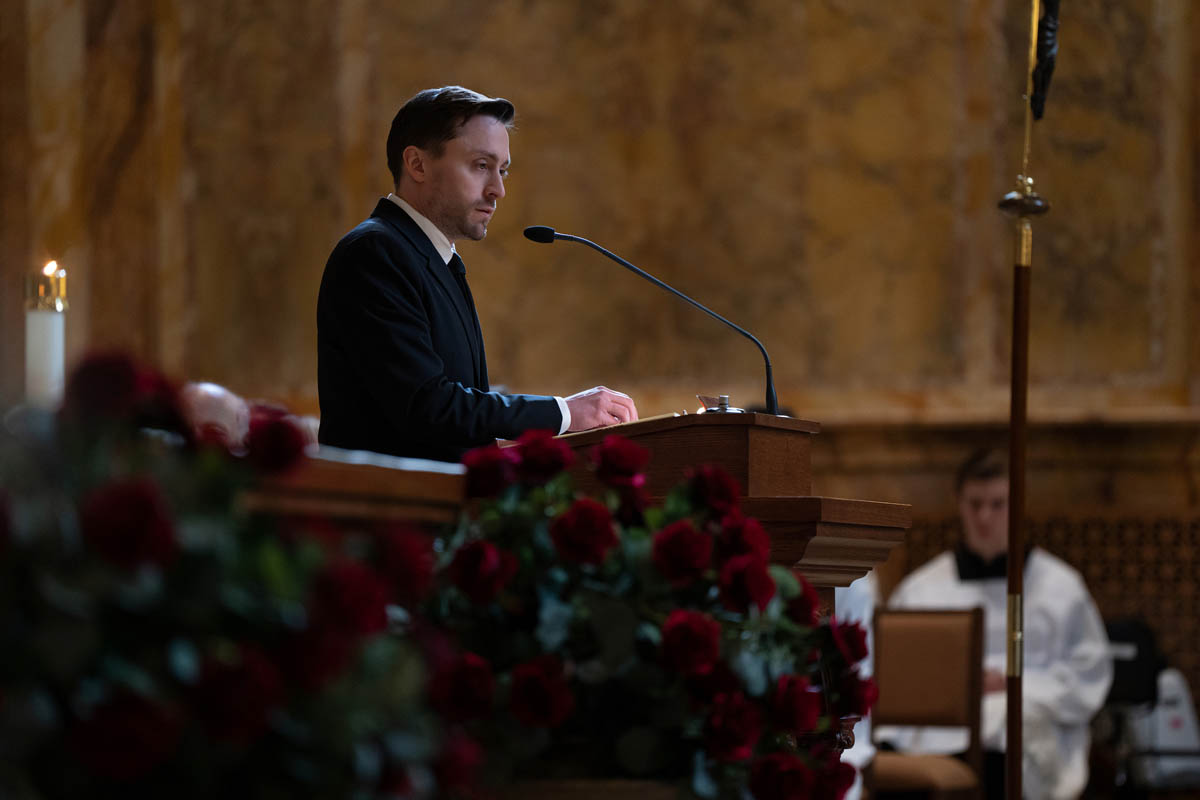
RIZZO: So I'm a hybrid of Ken and Bill because I also screen as multicam, but I use the markers and I usually write down notes as I'm screening. And feel like when I start cutting, I don't really look at my notes. I just cut. And then after I've cut the scene, I go back and look at the notes and see some matches. And if it doesn't I’ll look at stuff again, but I like having notes of my first reaction to the footage. But then I also find myself sometimes as I'm cutting that I may be drawn to a different performance, but in general, unless when it's the really crazy five camera scenes, I'm able to watch 2 to 3 cameras. You kind of like favor whoever is the main person in that scene. I try to as much as possible, watch in multicam just because there's just so much footage.
Well, since we're talking about the Emmys, anytime you are thinking about voting for Emmys, ACE Eddies, Oscars, what is it that when you're watching someone else's work that you are thinking about when you're choosing to put a checkmark next to somebody's name on a voting card?
HENRY: I was just talking about this with some friends the other night when they were asking me, “It must be very hard to watch stuff and not judge everything you're watching.” And it is true to a degree. But I find that if something is well done and I feel like I'm in capable hands in the first 10 minutes or 15 minutes of whatever it is that I stop paying attention in a way to how it's put together, unless there's something particularly dynamic or there's a structural convention that has been used to tell the story either in flashback or whatever the subject may be. And then I start really sitting up and taking notice of those sorts of things. But if the story or the film really grabs me by the throat and I'm engaged by the characters and the storytelling and the writing, then that would be where I'd probably tick my box.
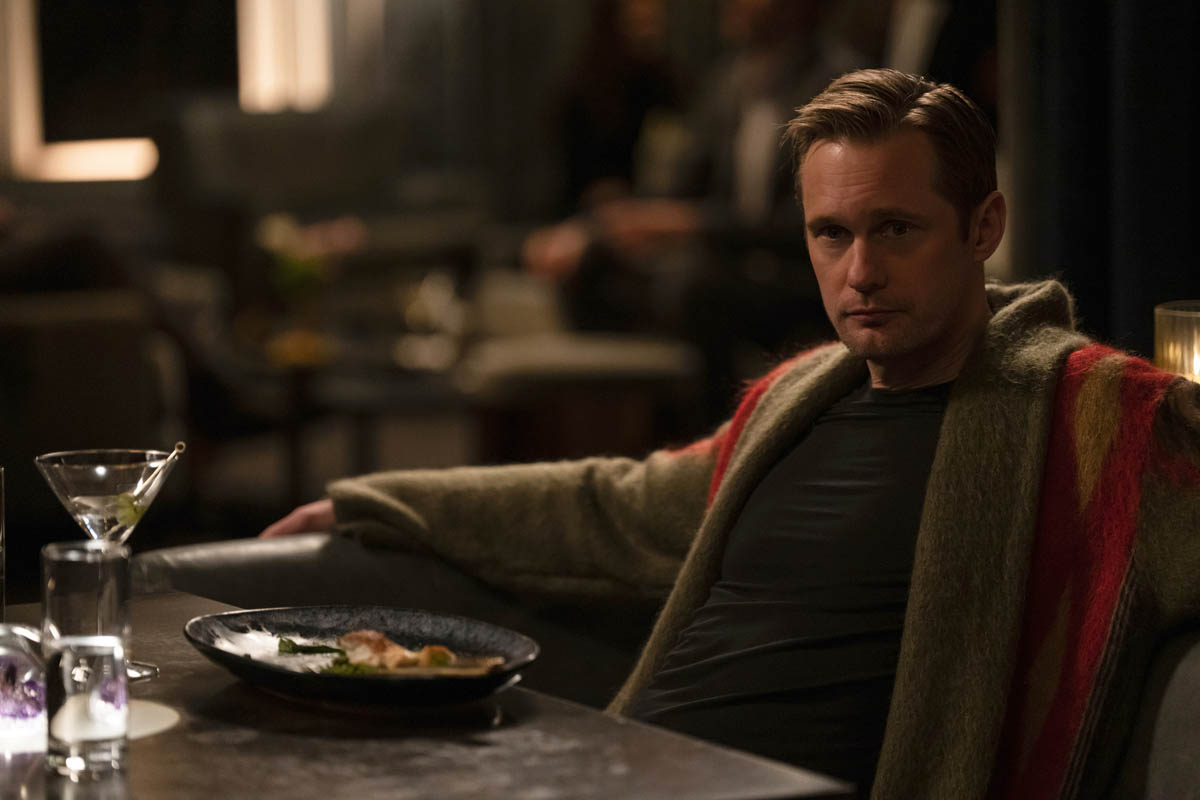
RIZZO: I always feel like it's so hard to judge because no one knows what footage you're being handed. So you could be doing miracles or… it's like the hardest thing to judge. I think in general, not knowing what there was in terms of footage, I'm always drawn towards really good performances because I feel that's a lot of what we do is craft really good performances and anything that has really good performances… I just feel like we all know how we can make a very good performance in the editing room.
ELUTO: I would agree. It's kind of hard to judge. I mean, particularly for Emmys, the submissions increase year after year and it's hard to see everything. I kind of get drawn to just shows that really interest me. It's really hard to judge editing because it's all built on the directing, the story, the the footage you get. If something pulls me in and it’s a show that I really enjoy, that's kind of where my my checkmarks go.
Was there any collaboration between the three of you or other editors on the show? Do you walk down the hall and show a scene to somebody or do you chat about things in the lunchroom or whatever?
ELUTO: Yeah, we visit each other a lot in the rooms. The rooms are close together and talk about scenes or look at things sometimes together or just talk about our episode. We definitely collaborate — well, not collaborate, but just talk about our own episodes. If there's time, I’ll always look at their editor’s cuts just to see how they're doing and what that episode looks like because I'm going to be doing another episode after that, so it's nice to see the story come together even though I've read the script.
.jpg)
HENRY: Specific to Succession and Jesse’s style of writing, he often will write the story points along the way in multiple episodes. And then when the shows start coming together — once he sees them in sequence — then he starts to make broader scope decisions about, “Well, maybe that particular story point would be better served if we held it later or brought it up sooner.” We all keep track of that because it's sometimes hard when there's so many different interconnecting story plot points that all three of us are tracking throughout the season, I do think that we find ourselves at loose ends about, “Well, this feels familiar from the script. Do you think Ken used it in his episode? Did Jane have it in hers?” Things of that nature, I think we definitely talk about pretty regularly and as Ken says, we do look at each other's editor's cuts because that is the full cut of the whole show before it starts getting trimmed down by directors and EPs and Jesse.
RIZZO: And I also think it's helpful to just see where the characters are at in terms of performances, knowing what just has happened or — for example — you're leaving Shiv at this moment, so when you come back with her… that kind of stuff.
HENRY: That I think was the biggest challenge for the three of us was tracking that Tom/Shiv dynamic this season because it was always shifting very gently in one direction or another: Ken’s amazing balcony scene… tracking those I remember having to subtly make some shifts in my scene in episode nine based on the information that had been laid out in Jane's episode at the election and those sorts of performance adjustments between the two of them, I feel, happened fairly frequently throughout this season. They're very carefully calibrated.
What’s the shooting schedule for one of these shows? Shooting schedule and then a post schedule, once the the shooting is done.
ELUTO: It kind of varies from episode to episode, I think. But usually it's 12 days shooting. The director gets roughly four days and Jesse’s writing additional episodes, so a lot of times it takes a while to get his feedback on stuff. It really varies from episode to episode.
All of you have been on multiple seasons. You kind of know the show better than some of the directors. So how does it work with a TV director who's kind of a hired gun and then their choices, their notes to you during their four day director's cut, but knowing that you're going to be moving on to a Jesse session after that.
RIZZO: Most of the directors were returning directors. I think everyone on Season four was returning. And Mark, he's been the supervising director since season one supervising director/EP. So I think there's a lot of trust between him and Jesse. Jesse likes to watch the editor’s cut, even though rarely do the directors cut that much out. I think he still wants to see what was the original script that was shot? For my experience this season, the notes were honestly pretty minimal and think maybe it's the directors are aware that Jesse's going to come in. But as you mentioned, I think Jesse trusts all three of us since we've done multiple seasons. He’s just the most incredible person. His notes are incredibly precise and insightful, I would say. But also you'll get big chunks with no notes whatsoever. He's not nitpicky about stuff. He'll give you some maybe broader notes on performance, but the notes are actually fairly minimal.
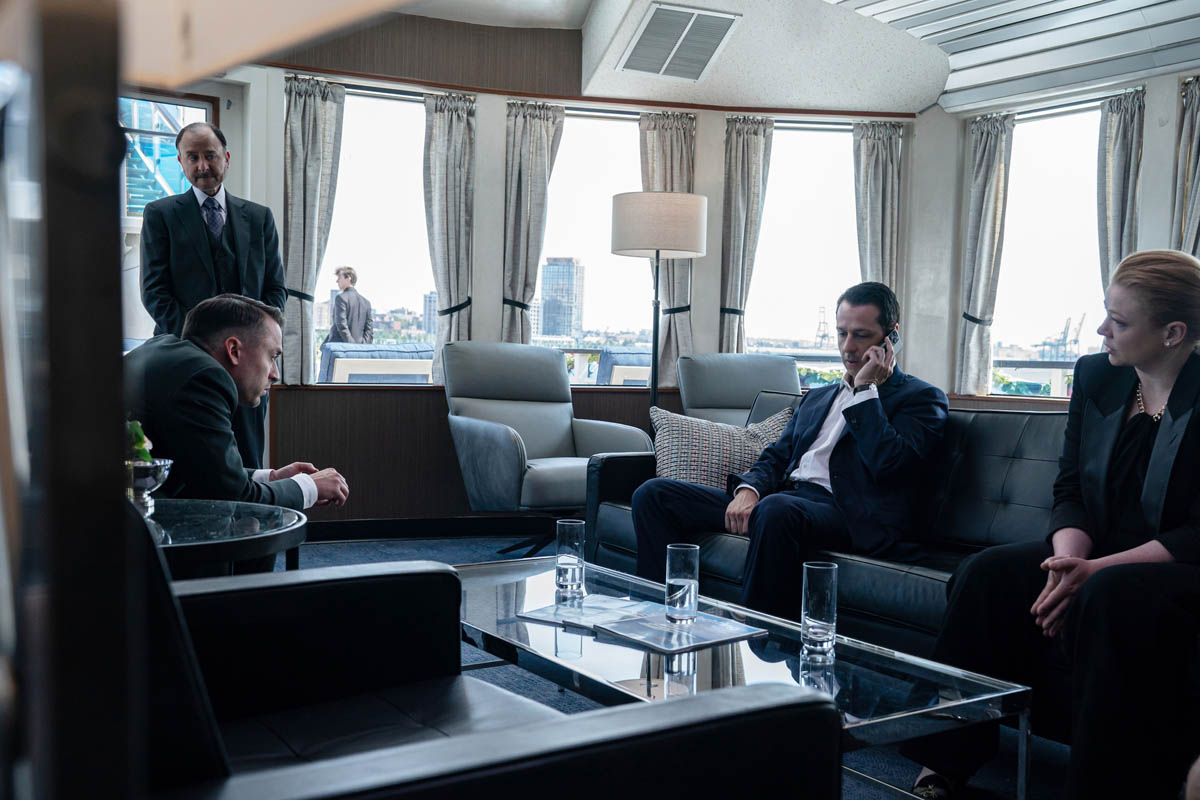
HENRY: This season I had the pleasure of doing two episodes with Mark Mylod, and then the other one was was Andrij Parekh, whom I'd worked with in Season two. Because of that, I'd already had a relationship in a shorthand with them and we all understood what the show was and what my capabilities were in terms of putting things together initially. Mark is a little more daring in the stuff that he takes out because he's got the backstory on what they've talked about on set — Jesse and he — so he probably would try taking more things out than others would. But in the end, everyone knows that it's going to be Jesse's rodeo. And he takes Frank Rich's notes and Jane Tranter and all these other people from the writer's room. There are a lot of people that we see notes from. He is very good about digesting and then giving an overall round of notes that we can do a pretty economical pass on. But he loves sitting in the room watching it, giving some broad strokes, and then he'll generally send his notes back to us.
One of the things I often talk to editors about is the need or the ability to sit in on the mix and what the value of that is.
RIZZO: We know this show better than anyone. I mean, I've gone there where there's ADR lines missing and stuff, you know, just because the post team is great, but there's ten episodes and three of us just know our every little choice that was made better than any of them.
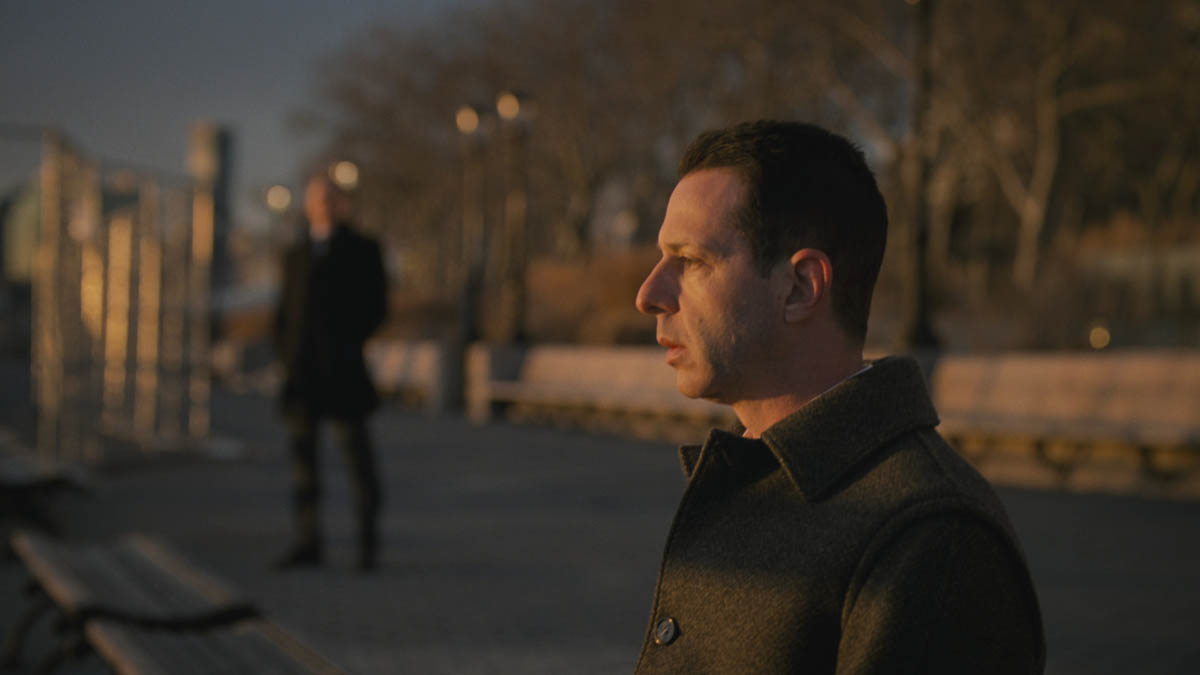
HENRY: There just so much sound work in these things. There is a lot there besides keeping track of ADR lines and production lines or even a breath or a sigh or any number of things that you're wildly sensitive to in terms of the rhythm of the cutting and what you've built out over all these months. I've been on shows where I haven't been allowed into the mix and when I see it aired I just want to take a gun to my head because I think, “What the heck?” So yes, we are fortunate that we are given the opportunity to go in there and do that and balance things in a way that feels right for us. And then, of course, in the end, it is Jesse's call on how we land.
Tell me about your agents. I would think that most of you are getting a lot of your work yourself. Word of mouth, your reputations. What is the value of an agent to you? What does your agent do for you that makes them worth the 10%?
RIZZO: I would say out of five jobs, maybe 1 to 2 will come from my agent. And I feel like Succession was actually one of the ones that came through my agent in 2017. I think it was season one. He just kind of said, “There's this HBO show coming. I think it could be good.” Mostly, I really hate having to negotiate anything and I love having someone else do that. And it happened to me really early on in my career that once I was in a position where some stuff was getting sketchy and it was a question of, “Are they going to hire another editor?” It was just helpful to have someone to talk through and have them call the producer. For me, the most important thing is just having someone negotiate.
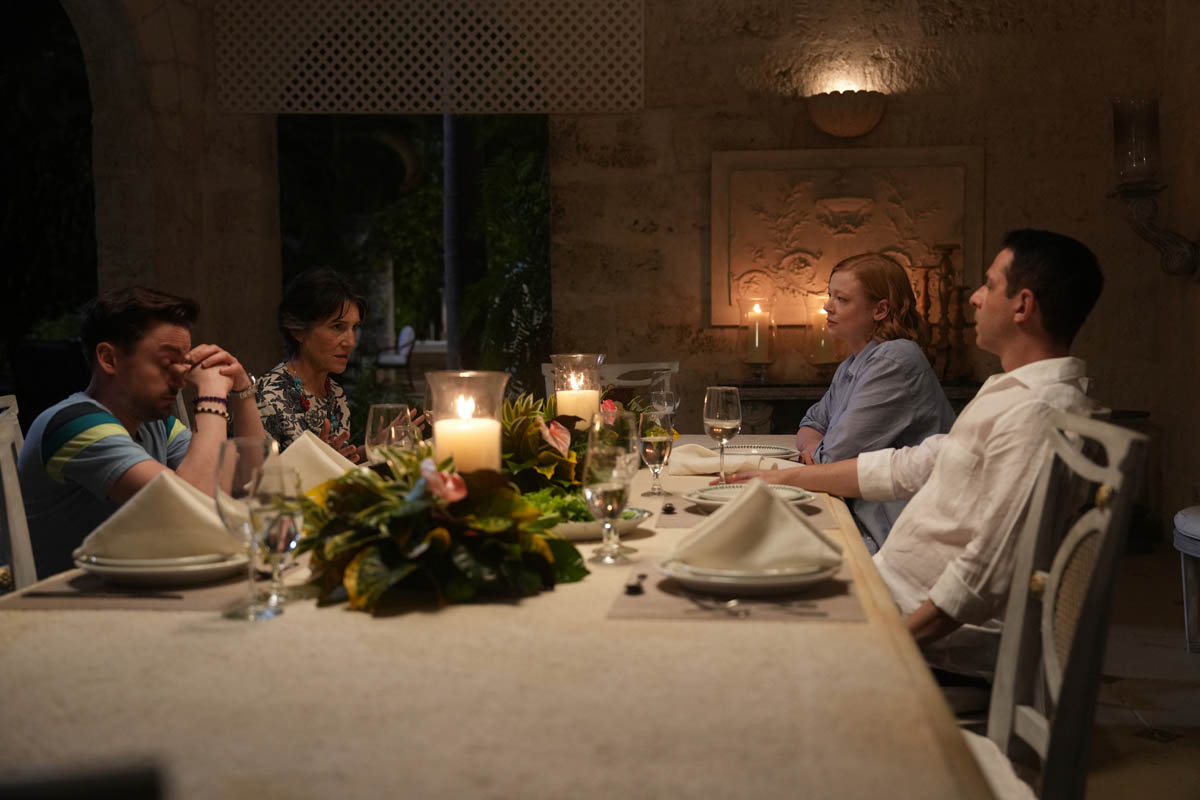
HENRY: I agree. To be fair, Jane should have gotten 10% of Succession because she managed to get me in for the initial introduction. Agents are great for not having to talk about money and those things. I'm going through a little bit of a thing right now with a possible job. I have Ann Murtha at Murtha Skouras and she's very lovely, hard-nosed, people like her. And she was also really sweet. I went into a rough patch about 2016 or so where I was let go from a feature, and she came to New York and I remember having lunch with her and she said, “Look, This is going to all work itself out. You're going to be fine.” Even though I was in this abyss of thinking my career was over. And She was right, because here we sit.
What about just approach? So Ken, it sounds like you are the one that likes to have string outs?
ELUTO: I do. It's a little difficult to show for that to happen on this, just because of the cameras all moving around. But you know, as much as they can do that, it's great. Mostly it also helps with if a director comes in and wants to see the various takes, it's really useful to have those strung out and then start piecing my cut together. And a lot of times I'll just do like a really rough assembly and maybe use alternate takes of line just because I'm not sure which ones I would like better. Kind of weed it down, then put it away for a couple of days.
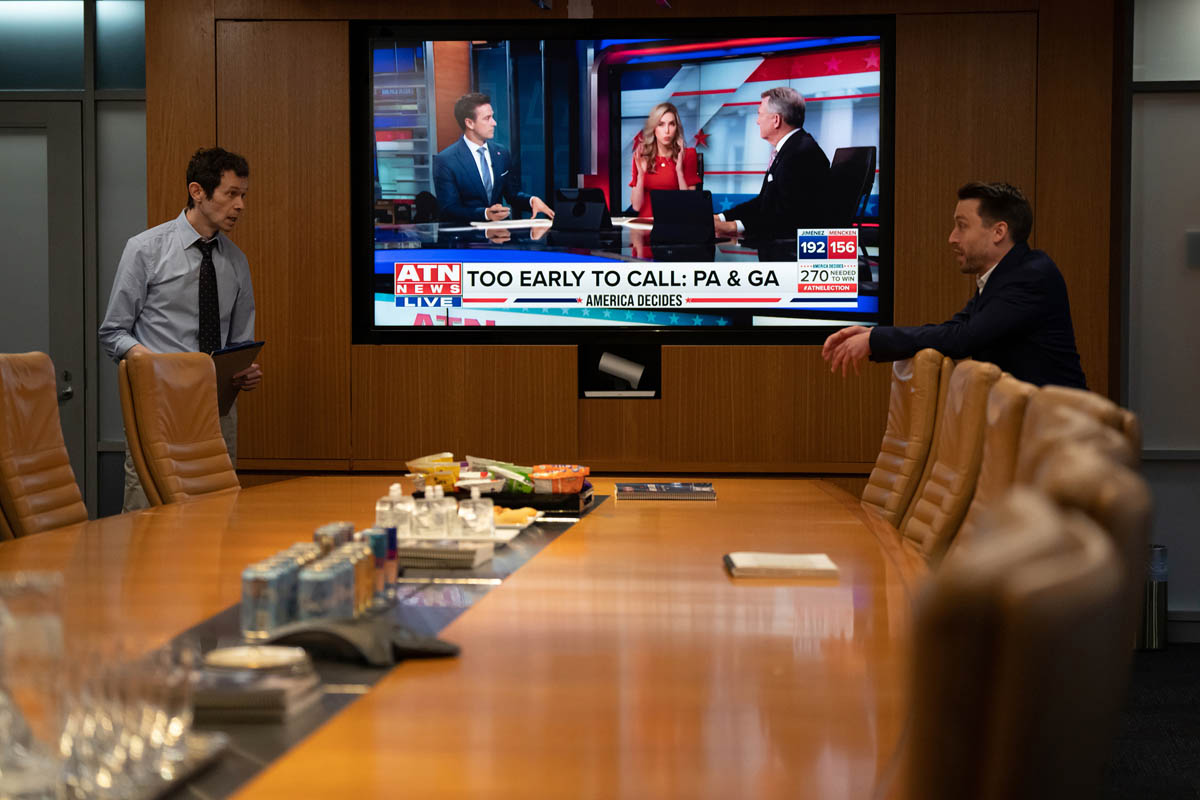
RIZZO: I will always have multiple versions of scenes with alts and stuff, but I work them a fair amount. I think what I change a lot — the hardest for me — is the beginning and sometimes the ending of the scene. So sometimes I just put in something so that you can start and then, I often find myself going back to the beginning. But in general, I feel like I'll do a pretty polished scene and I'll send it to the assistant to do sound work, unless I'm just really unsure of what direction the scene should go. But in general, I trust my gut and kind of go one way and clean it up fairly well. Then, once three scenes are together, obviously I may be massaging both internally and the beginning and the end. So I do feel like I'm constantly tweaking.
HENRY: I can't concentrate if there are a lot of bumps and it's messy and whatnot, so I do try and make it as polished and clean as I can initially, and I will do versions where I try other takes within a version, but I definitely feel like there's a huge advantage to: once you've worked your way through a scene to shelve it and move on to the next and making your way through it, and then I'll do these string outs when I start getting scenes that are sequential in the script, and if I have a hole in between two sequences, I'll generally just work within the three scenes, let's say in a row, and I will work those, and then when I get those filled in then I'll go back and look at the whole thing and start making more cuts and changes and judgments and think, “What was I thinking the day this?” That self-talk goes on. And if I ever get into a hole, which occasionally happens when you're dealing with 9 or 10 people around a table and you're there at ten at night trying to solve a riddle that you just can't seem to solve. Invariably, if I just cut the cord, go home and come back the next morning and look at it fresh, I can unravel it pretty quickly in the morning.
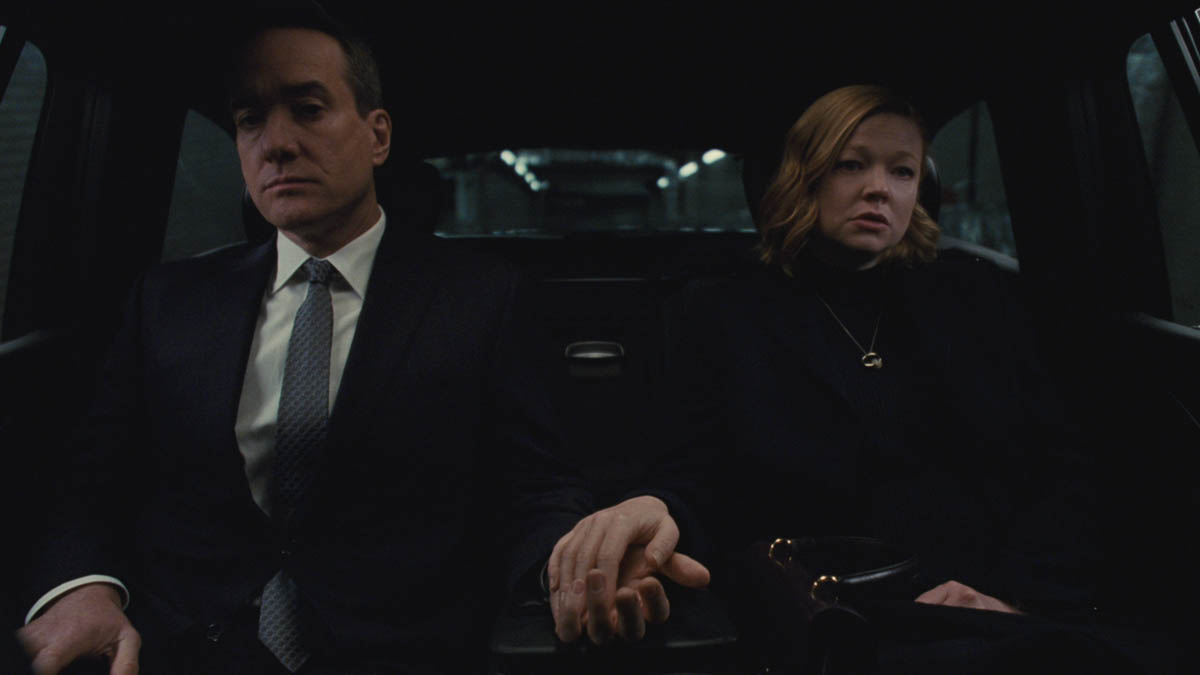
The gut-hit of the material in the first pass is hugely important to me. When I do locators — when I'm watching the dailies — and change them from red to magenta I invariably find a huge percentage of what ends up in the cut are those initial responses where I thought, “Oh, that was a great beat.” When I’m in dailies what my assistant first puts in locators, they're all red. And then when I go through it and watch it, I switch them to magenta depending on if they speak to me.
Let’s talk about how scenes change once you get context. When do you start to bolt the scenes together? And then what happens to your decision-making when you cut the scene in dailies to when you start to bolt them together? What starts to happen?
ELUTO: I start putting the scenes together as they coming in. If I have three scenes in a row that I can put together, i'll do that and watch them down. It's also useful, because if you're putting score in there, sometimes you feel like, “Oh, I want music here, but I’m waiting for the next scene.” So you’ve got to put them together first before I can put the score in. It's just a revision process throughout. Working on one scene and then put them together and making adjustments as I go.
In each of your episodes that are nominated, what was a scene that either you feel was particularly challenging or that you're particularly proud of?
RIZZO: I cut the election episode, which they had shot for several days before shooting the footage in the NBC studios in New Jersey — the whole kind of election night coverage — because in general, Jesse likes as much as possible to be practical, and most monitors are showing footage and there are maybe two monitors that were greenscreen and VFX, but it was all practical other than that, which I think also really helps the actors for the performance to be reacting to what was happening that election night. So I had all this footage from the TV cameras. And in general, unlike other episodes, Jesse really wanted the background sound to be present. And he wants to make sure you feel the TV, this kind of like constant political commentary going on. That was the challenge of that episode was just kind of like a little bit my hands were tied in certain moments as to what was on the screen and how they were reacting. And again, because the cameras are constantly moving and no two takes are alike, sometimes it was really hard to make it feel like it was all happening at the same time with the screen and having to match to that. So any of those scenes that were in the fishbowl TV area — there's a scene where Roman goes downstairs and then you cut and you see the newscaster and Shiv comes in. So that scene was kind of hellish to cut. They shot it over the course of two days, but think it came out pretty well.
ELUTO: And the finale there was, I could choose a lot of scenes, but the one that was most challenging — and actually it turned out to be the final scene they shot of the whole series — which was Tne Meal Fit for a King scene where they basically annount Kendall to be the one. And they go into the kitchen and they're all kind of happy at this point, which is unusual. “Let's make them a meal fit for a king,” And they start taking stuff out of the fridge. The mother comes in. The continuity for every take was totally different: putting stuff in the blender, the mother coming in, the refrigerator stuff, kendall sitting. So it was fun to cut, but really challenging to make it work. There were longer versions where they were tossing eggs around. There was a shorter version. It was really fun because you see Roman licking the cheese and there's just a lot of fun stuff in it. And then he pours the stuff on Kendall's head. I think there were maybe seven takes and I think he did it probably like 3 or 4 times. I asked Marcus, “Wow, did you have how many shirts did Kendall have?” He said they actually had to wash it in between takes because it was a very expensive shirt. It was just a fun scene to cut. There was an outtake where you see Mark and Jesse hugging each other after because it was basically the final scene they shot.
HENRY: The centerpiece of episode three was the plane to boat phone call that included this very elaborately staged 27 minute take. That Mark was inspired somehow by something that Kieran mentioned to him when they first started shooting the sequence, at the very beginning of the shoot of the call. Though, I got a lot of coverage leading up to that day when they shot the actual one take with the three cameras, I strung the entire scene on the boat together as my clothesline because they shot the plane later, though they had Tom in London doing live phone calls to the set when they were shooting the boys and live on the on the phone so that they had real reactions to it. He wasn't phoning it in. He was acting, Tom, on the other side of the phone, and very often there was a lot of overlapping between what was being said by the boys and Shiv on the floor and then the actual call coming in from London. And so the trick was managing that and then seamlessly cheating stuff that was actually production dialogue from the plane — from Tom's side. It was a real-time 27-minute run that followed them as they find out about the demise of their father. Kieran doesn't believe it. They're all in a little bit of a state of disbelief, and they were really quite amazing at their ability to stay focused and in the oner that they did on the third or fourth day of the shoot — in the last section when they were up in the captain's quarters — the interesting thing about the one take was that they were good in the first half to two thirds of it, but you could definitely see them ramping up, and by the time they got upstairs to the captain's quarters, where Kieran is in total denial that his father is dead and Shiv says, “No, I think he's really gone.” A lot of that was from that one take and he was incredible and she was incredible. It was like live theater to a degree. And they're just extraordinary actors.
